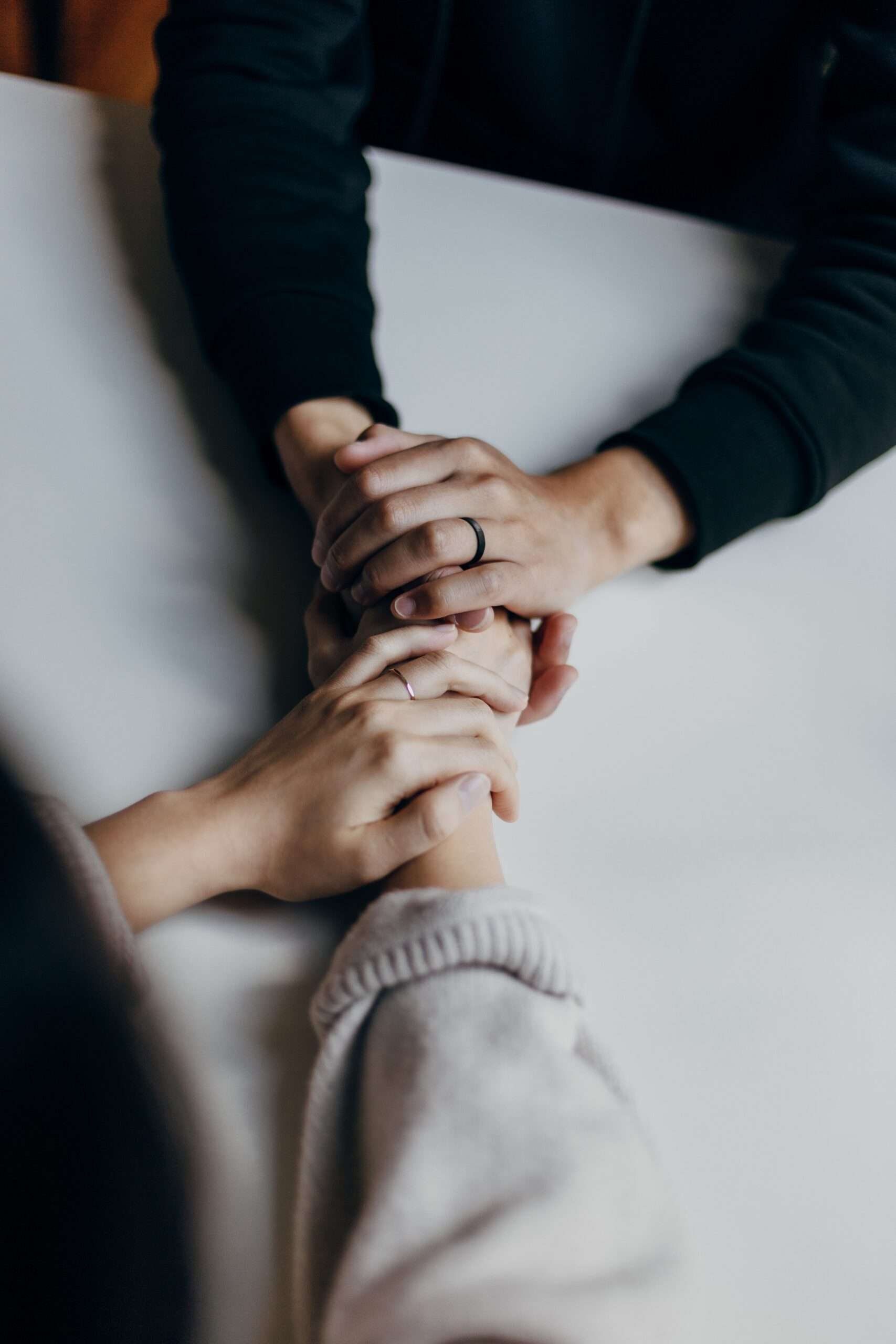

When something’s bothering your dog, you can tell. After all, you know your pet best. Just like how each dog has his own way of exhibiting stress, each dog can react differently to calming methods. Whether your dog suffers from anxiety or is experiencing a stressful situation like thunderstorms or fireworks, try some of these strategies out the next time your pet needs some comfort
How do you calm a nervous dog?
Whether you are wondering how to relax a dog with anxiety or calm a nervous dog, there are different approaches that can make your pet more comfortable.
1. Play some music
You probably have a go-to song you listen to when you’re overwhelmed—but did you know that music can calm down dogs, too? Playing music can help calm dogs with stress and anxiety.
Studies have shown that playing music—specifically soft rock and reggae—can reduce dogs’ heart rates, cortisol levels, and other symptoms of stress. There is even special calming music meant for dogs, too. It can help ease separation anxiety when you’re away from home and reduce stress during storms or fireworks.
Try putting on some tunes or switch on the radio the next time your pet gets anxious.
2. Try aromatherapy
Yes, there’s aromatherapy for dogs! Aromatherapy can be useful in calming down an anxious dog. Essential oils can help soothe your pet; you just have to be careful. Don’t use any essential oils you have around the house. Instead, purchase a vet-approved, specially formulated oil meant for pets. These will include the right balance of oils and be diluted properly.
When applying, be sure to rub the oil along your dog’s back and avoid applying to places where they could lick it off.
Don’t forget to do your research on what essential oils dogs enjoy and what you need to stay away from. Chamomile, lavender, cedar, and bergamot have calming and grounding properties, so look for formulas that include these oils.
Steer clear of tea tree, citrus, anise, clove, wormwood, and other essential oils that are harmful to dogs.
3. Get some exercise
When your dog is hyperactive or jittery, go for a run or play some fetch. This will help alleviate extra energy and work out any nerves from being cooped up for too long or getting stressed out.
A frisbee and some fresh air can work wonders. If your dog remains hyperactive, take breaks during a game of fetch. Every time they return the ball to you, have your dog sit and make eye contact with you before you throw it again. This can help calm them down.
Try to avoid other dogs or dog parks until your dog is calm. Otherwise, too much social stimulation may stress them out even more. It is important to calm down or relax an anxious dog before putting them in potentially stressful settings.
4. Soothe your pet
If music, aromatherapy, and exercise don’t help, try these soothing strategies:
- Put your dog in a dark room with no external stimulation. This isn’t a timeout, but a way to relax and reset. It might help to
place some of your clothes there.
- Never underestimate the power of physical touch. Slow, steady pets and belly rubs can make a big difference.
- Check your own stress levels. Dogs can sense your anxiety and feed off it. Take deep breaths and ensure that you’re speaking in a calm voice.
5. Remember reinforcement
Reinforce positive behavior and discourage negative behavior. When your dog is jumping, barking, and getting too hyper, don’t immediately reach to pet them or soothe them. This can teach your pet that these behaviors work to get your attention fast.
Instead, don’t make eye contact or touch your dog when they’re acting this way. When ignored, your dog can stop this behavior and calm down.
When your dog deals with stress positively, don’t forget to reward them with a treat!
—
Want to learn more pet health tips? Check out our blog. And for great deals on all-natural dog chews, visit our website.
How Noise Can Affect Your Sleep Satisfaction 
Alexa Fry, Senior Health Editor

Read Full Bio
Want to read more about all our experts in the field?
Learn About The Editorial Team 
Dr. Nilong Vyas, Pediatrician

Read Full Bio
Want to read more about all our experts in the field?
Learn About The Editorial Team
Fact Checked
Learn More
Sleep Foundation
Fact-Checking: Our Process
At Sleep Foundation, we personally test every product featured in our reviews and guides. This hands-on approach allows us to provide accurate, data-driven recommendations for mattresses, pillows, sheets, and other sleep essentials.
Guidelines for our testing methodology are as follows:
-
We only cite reputable sources when researching our guides and articles. These include peer-reviewed journals, government reports, academic and medical associations, and interviews with credentialed medical experts and practitioners.
-
All scientific data and information must be backed up by at least one reputable source. Each guide and article includes a comprehensive bibliography with full citations and links to the original sources.
-
Some guides and articles feature links to other relevant Sleep Foundation pages. These internal links are intended to improve ease of navigation across the site, and are never used as original sources for scientific data or information.
-
A member of our medical expert team provides a final review of the content and sources cited for every guide, article, and product review concerning medical- and health-related topics. Inaccurate or unverifiable information will be removed prior to publication.
-
Plagiarism is never tolerated. Writers and editors caught stealing content or improperly citing sources are immediately terminated, and we will work to rectify the situation with the original publisher(s)
-
Although Sleep Foundation maintains affiliate partnerships with brands and e-commerce portals, these relationships never have any bearing on our product reviews or recommendations. Read our full Advertising Disclosure for more information.
Our team of writers, editors, and medical experts rigorously evaluates each article to ensure the information is accurate and exclusively cites reputable sources.
We regularly assess how the content in this article aligns with current scientific literature and expert recommendations in order to provide the most up-to-date research.
Noise has a major impact on sleep. Exposure to too much noise during sleep has immediate effects while we are sleeping, which leads to short-term issues the next day, and over time may result in long-term mental and physical consequences.
Effects of Noise During Sleep
Noises at night might wake you up, and a fragmented night’s sleep is less refreshing. Even noises that don’t wake you up have subconscious effects on sleep by changing the time we spend in certain sleep stages. Sleep stages are the different types of sleep we cycle through each night, ranging from lighter stages (1 and 2) to deep (slow wave) sleep and rapid eye movement (REM). Environmental noise, such as air and vehicle traffic, has been shown to Trusted Source National Library of Medicine, Biotech Information The National Center for Biotechnology Information advances science and health by providing access to biomedical and genomic information. pubmed.ncbi.nlm.nih.gov increase stage 1 sleep and decrease slow wave and REM sleep.
Nighttime noise may also cause Trusted Source National Library of Medicine, Biotech Information The National Center for Biotechnology Information advances science and health by providing access to biomedical and genomic information. pubmed.ncbi.nlm.nih.gov extra production of hormones such as adrenaline and cortisol as well as elevated heart rate and blood pressure.
A study of circadian rhythms in mice showed an increased sensitivity Trusted Source American Institute of Physics (AIP) Publishing AIP Publishing comprises highly regarded, peer-reviewed journals, including a growing portfolio of Open Access titles, that cover all areas of the physical sciences. aip.scitation.org to noise trauma at night compared to during the day, and the researchers hypothesize this sensitivity may apply to human circadian rhythm as well.
Short-Term Effects of Noise
Getting sufficient undisturbed sleep is critical for feeling good and performing well. Although you are unlikely to notice subtle changes to your sleep structure and biochemical experience of sleep, these changes can manifest the next day in ways that are more pronounced. Sleepiness, irritability, and poorer mental health are associated with Trusted Source National Library of Medicine, Biotech Information The National Center for Biotechnology Information advances science and health by providing access to biomedical and genomic information. pubmed.ncbi.nlm.nih.gov exposure to nighttime noise the night before.
Long-Term Effects of Noise
Poor quality sleep over a long period of time is linked with Trusted Source National Library of Medicine, Biotech Information The National Center for Biotechnology Information advances science and health by providing access to biomedical and genomic information. pubmed.ncbi.nlm.nih.gov high blood pressure, heart disease, weight gain, type 2 diabetes, and certain types of cancer. The relationship between noise during sleep and long-term health effects is less clear, but studies indicate a possible association with high blood pressure Trusted Source National Library of Medicine, Biotech Information The National Center for Biotechnology Information advances science and health by providing access to biomedical and genomic information. pubmed.ncbi.nlm.nih.gov , heart disease and stroke Trusted Source National Library of Medicine, Biotech Information The National Center for Biotechnology Information advances science and health by providing access to biomedical and genomic information. pubmed.ncbi.nlm.nih.gov , increased use of sleep medications Trusted Source National Library of Medicine, Biotech Information The National Center for Biotechnology Information advances science and health by providing access to biomedical and genomic information. pubmed.ncbi.nlm.nih.gov , and decreased overall health.
How To Avoid Noises When Trying to Sleep
In a city, it’s common to deal with the sounds of traffic, sirens, airplanes, or people gathering outside. Even in suburban or rural settings you are unlikely to be completely isolated from noisy appliances, cars, neighbors, and animals during the night. Additionally, other people or pets in your home may make noise that disrupts your sleep. Think about the specific sounds that affect your living space as you review the following ideas for avoiding noise at night.
Adjust Your Bedroom Environment
Creating a bedroom space that’s as supportive of a quiet night’s sleep as possible is a critical part of good sleep hygiene.
- Add soft surfaces: Sound reverberates off of hard surfaces and is absorbed by soft ones. Adding rugs, cushioned furniture, or thick curtains to your bedroom might help block or lessen noise both coming in from the street and from within your house.
- Insulate windows: If loud noises are infiltrating your bedroom from the outside, options include installing soundproof windows as well as sealing any air gaps in the windows you have.
- Reduce appliance noise: If your refrigerator or air conditioner is emitting abnormal sounds, have it repaired. When the time comes to replace an appliance, shop for one that is quiet.
- Turn off alerts: Make sure you have your electronic devices on silent mode so that notifications don’t wake you up at night.
Plug Your Ears
Depending on your living situation, you may not be able to physically soundproof your bedroom. Ear plugs are an effective tool as long as they don’t interfere with your ability to sleep. A research study found that hospital patients who wore earplugs and an eye mask Trusted Source National Library of Medicine, Biotech Information The National Center for Biotechnology Information advances science and health by providing access to biomedical and genomic information. pubmed.ncbi.nlm.nih.gov woke up less often and experienced more deep sleep compared to a group of patients who did not.
An alternative to earplugs is to find small, comfortable noise-cancelling headphones, which are designed to block out noise and also allow you to introduce relaxing sounds that could help you sleep.
Negotiate With Others
If your primary source of noise at night is coming from other people in your home, communicate with them about how they can help you get the sleep you need and how you can return the favor. When operating on different sleep schedules, some noise at night is inevitable, but you could try agreeing upon rules for quiet hours. For example, it might help to request that your partner or roommate use headphones to listen to TV or music and refrain from talking on the phone inside while you are sleeping. Planning ahead by cooking meals and laying out the next day’s clothes during waking hours can also cut down on disruption.
If your partner’s snoring is keeping you up, talk with them about it. Lifestyle changes or anti-snoring mouthpieces might help. Very loud snoring and choking or gasping sounds at night could be signs of obstructive sleep apnea. Seek a doctor’s help if you notice these symptoms in your partner.
Is It Better to Sleep in Silence or With Noise?
In a perfect world, we would all have the option to retreat to a completely soundproof bedroom. However, noise exposure is a nightly reality for most.
You might be able to limit sound exposure in your bedroom at night by following the steps outlined above, but if that’s not enough, adding an “acoustic perfume” to your bedroom environment might help. A consistent background noise may mask or drown out the sounds you can’t control and could help to counteract the harmful effects of noise exposure during sleep. Also, some people find that background noise helps to distract them from anxious or intrusive thoughts and prepares the mind for sleep.
Research studies have produced conflicting data about whether adding a stream of background noise improves sleep quality. One study of the effects of adding sound from an air conditioner in the home found no positive impact Trusted Source National Library of Medicine, Biotech Information The National Center for Biotechnology Information advances science and health by providing access to biomedical and genomic information. pubmed.ncbi.nlm.nih.gov on sleep. In another experiment, researchers investigated the effect of broadcasting white noise into the rooms of hospitalized patients and found that white noise improved sleep quality Trusted Source National Library of Medicine, Biotech Information The National Center for Biotechnology Information advances science and health by providing access to biomedical and genomic information. pubmed.ncbi.nlm.nih.gov over the course of three nights compared to a control group. A third study of patients who were having trouble sleeping showed that white noise helped them fall asleep 38% more quickly Trusted Source National Library of Medicine, Biotech Information The National Center for Biotechnology Information advances science and health by providing access to biomedical and genomic information. pubmed.ncbi.nlm.nih.gov . Given the inconsistent data, the utility of adding background noise may come down to personal preference.
What Are the Best Sounds to Sleep To?
The best night sounds for sleeping can vary from one person to the next, but consider utilizing sounds that are loud enough to cover other noises and that maintain an even tone and volume; sudden sound changes could cause you to wake up. It might help to experiment with a few and see what works for you. Here are some ideas to get you started:
- White noise: White noise is produced by layering multiple sound frequencies at the same time. One option is to invest in a white noise machine; you could also look into downloading a white noise app or sound file to your smartphone or tablet. If white noise sounds too harsh, then you may prefer pink noise instead. Pink noise combines louder high-frequency noise with softer low-frequency noise, resulting in a sound that is more even and less layered.
- Turn on a fan or air conditioner: These devices produce consistent ambient noise that may help to drown out intrusive environmental sounds.
- Music: The songs that are soothing and sleep-inducing depend on one’s own musical taste and personal experience with music. You might try creating a playlist of songs that are relaxing to you or searching for curated sleep playlists provided by streaming services.
- Sounds from nature: Hearing rain, ocean waves, wind, and other natural sounds helps some people fall asleep. Certain sleep sound machines come programmed with a selection of sounds to choose from, or you can search for apps or sound files to download onto your device. A variety of sleep sounds can also be found on our YouTube channel.
If you’re ready for more ⟶ sign up to receive our email newsletter!
Your privacy is important to us.
Thanks for the feedback – we’re glad you found our work instructive!
Was this article helpful?
Thanks for the feedback – we’re glad you found our work instructive!
Submitting your Answer…
About Our Editorial Team

Alexa Fry
Senior Health Editor
Alexa Fry is a science writer with experience working for the National Cancer Institute. She also holds a certificate in technical writing.

Dr. Nilong Vyas
Pediatrician
MD
Dr. Vyas is a pediatrician and founder of Sleepless in NOLA. She specializes in helping parents establish healthy sleep habits for children.
References
+12 Sources
-
Basner, M., Müller, U., & Elmenhorst, E. M. (2011). Single and combined effects of air, road, and rail traffic noise on sleep and recuperation. Sleep, 34(1), 11–23.
https://pubmed.ncbi.nlm.nih.gov/21203365/
-
Basner, M., Clark, C., Hansell, A., Hileman, J. I., Janssen, S., Shepherd, K., & Sparrow, V. (2017). Aviation Noise Impacts: State of the Science. Noise & health, 19(87), 41–50.
https://pubmed.ncbi.nlm.nih.gov/29192612/
-
Gonze, D., & Goldbeter, A. (2006). Circadian rhythms and molecular noise. Chaos (Woodbury, N.Y.), 16(2), 026110.
http://aip.scitation.org/doi/10.1063/1.2211767
-
Halperin D. (2014). Environmental noise and sleep disturbances: A threat to health?. Sleep science, 7(4), 209–212.
https://pubmed.ncbi.nlm.nih.gov/26483931/
-
Medic, G., Wille, M., & Hemels, M. E. (2017). Short- and long-term health consequences of sleep disruption. Nature and science of sleep, 9, 151–161
https://pubmed.ncbi.nlm.nih.gov/28579842/
-
Jarup, L., Babisch, W., Houthuijs, D., Pershagen, G., Katsouyanni, K., Cadum, E., Dudley, M. L., Savigny, P., Seiffert, I., Swart, W., Breugelmans, O., Bluhm, G., Selander, J., Haralabidis, A., Dimakopoulou, K., Sourtzi, P., Velonakis, M., Vigna-Taglianti, F., & HYENA study team (2008). Hypertension and exposure to noise near airports: the HYENA study. Environmental health perspectives, 116(3), 329–333.
https://pubmed.ncbi.nlm.nih.gov/18335099/
-
Floud, S., Blangiardo, M., Clark, C., de Hoogh, K., Babisch, W., Houthuijs, D., Swart, W., Pershagen, G., Katsouyanni, K., Velonakis, M., Vigna-Taglianti, F., Cadum, E., & Hansell, A. L. (2013). Exposure to aircraft and road traffic noise and associations with heart disease and stroke in six European countries: a cross-sectional study. Environmental health : a global access science source, 12, 89.
https://pubmed.ncbi.nlm.nih.gov/24131577/
-
Franssen, E. A., van Wiechen, C. M., Nagelkerke, N. J., & Lebret, E. (2004). Aircraft noise around a large international airport and its impact on general health and medication use. Occupational and environmental medicine, 61(5), 405–413.
https://pubmed.ncbi.nlm.nih.gov/15090660/
-
Demoule, A., Carreira, S., Lavault, S., Pallanca, O., Morawiec, E., Mayaux, J., Arnulf, I., & Similowski, T. (2017). Impact of earplugs and eye mask on sleep in critically ill patients: a prospective randomized study. Critical care (London, England), 21(1), 284.
https://pubmed.ncbi.nlm.nih.gov/29157258/
-
Alkahtani, M. N., Alshathri, N. A., Aldraiweesh, N. A., Aljurf, L. M., Aldaej, L., Olaish, A. H., Nashwan, S. Z., Almeneessier, A. S., & BaHammam, A. S. (2019). The effect of air conditioner sound on sleep latency, duration, and efficiency in young adults. Annals of thoracic medicine, 14(1), 69–74.
https://pubmed.ncbi.nlm.nih.gov/30745938/
-
Farokhnezhad Afshar, P., Bahramnezhad, F., Asgari, P., & Shiri, M. (2016). Effect of White Noise on Sleep in Patients Admitted to a Coronary Care. Journal of caring sciences, 5(2), 103–109.
https://pubmed.ncbi.nlm.nih.gov/27354974/
-
Messineo, L., Taranto-Montemurro, L., Sands, S. A., Oliveira Marques, M. D., Azabarzin, A., & Wellman, D. A. (2017). Broadband Sound Administration Improves Sleep Onset Latency in Healthy Subjects in a Model of Transient Insomnia. Frontiers in Neurology, 8, 1.
https://pubmed.ncbi.nlm.nih.gov/30670235/



